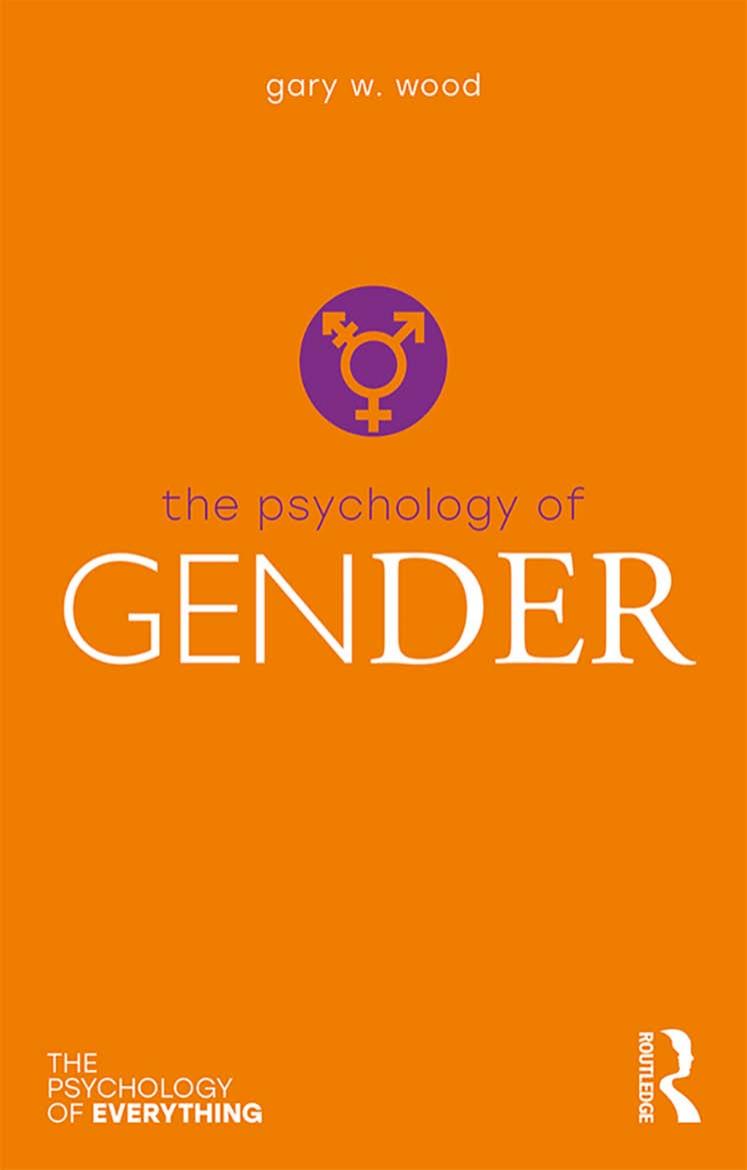The Psychology of Gender by Gary Wood

Author:Gary Wood
Language: eng
Format: epub, pdf
Published: 2018-02-05T06:48:16+00:00
5
GENDER STORIES, BACKWARDS,
FORWARDS AND SIDEWAYS
By way of an antidote to the impersonal world of statistics and the dark
side of gender-role stereotypes (in Chapter 4), this chapter begins an
excursion into the stories we tell about gender. Here we contemplate
how we use human creativity (and psychology) to consider alterna-
tive gender schemata in which we might thrive. This first half of the
chapter discusses the lasting effects of Judaeo-Christian scripture on
gender-role stereotypes and binary thinking. It also explores other
stories, such as fairy tales, science fiction and re-readings of cultural
history, all of which can impact on our gender schemata. The second
half of the chapter considers ways forward for a new psychology of
gender.
MEANING-MAKING AND GENDER
Gender adds a great deal to cultural richness. 1 Chances are it plays
an integral part in your favourite works of art, such as books, plays,
poems, songs, paintings, films and television programmes. Through-
out history, art has deployed gender in ways that are fun, entertaining
or thought provoking. 2 From Shakespeare’s plays to the films of John
Waters, from Japanese Noh to British Pantomime, from Glam Rock
to Hip Hop, from New Romantics to Punk, from Yaoi3 to fan fiction,
66 G E N D E R S TO R I E S
gender is a vital ingredient. Human creativity imbues our lives, and
our schemata, with colour and meaningfulness.
We are all storytellers. We all have life stories. Your story is not just
a linear narrative. You edit and construct it to convey a sense of who
you are, your psychology, your identity. Your story is also open to
different interpretations by others, in terms of how you fit into their
stories. Sociologist Michael Mulkay argues that ‘every “social action”
and every “cultural product” or “text” has to be treated as a source
or an opportunity for creating multiple meaning, or further texts’. 4
Psychologists Wendy and Rex Stainton-Rogers contend that ‘research
reports are the products of human meaning-making, as much are
films, fictions and fantasies’.5 Common sense, pop-psychology and
academic psychology all tell different stories about gender. This book
began with an allusion to dystopian science fiction short story Minority
Report which tells of advanced pre-cognitive crime detection systems.
Gender is also about having our lives mapped out before we have lived
them, and as much about self-identity, just as with science fiction, it is
about making sense of our relationship with ‘aliens and others’.
We begin with an early example of meaning-making that still
influences the social and political world today.
COSMOLOGY AND AMBIGUITY
Classics scholar Richard Hoffman defines a cosmology, in its broadest
sense, as a culturally specific account of how the universe came about. 6
We might think of a cosmology as an over-arching meta-schema. The
earliest cosmologies were religious accounts whose primary purpose
was to help people make sense of the human experience (and their
place in the universe). They imposed a structure that included the roles
and functions of the culture’s inhabitants and their relationship to each
other and to outsiders. This encompassed gender roles and attitudes to
sex and sexuality. English and American literature scholar Elaine Scarry
argues that Judaeo-Christian scripture can be credited with ‘sponsor-
ing a civilization to a degree shared by no other isolated verbal text’.7
Its influences are still detectable in Western psychology, psychiatry,
G E N D E R S TO R I E S 67
medicine and the law.
Download
This site does not store any files on its server. We only index and link to content provided by other sites. Please contact the content providers to delete copyright contents if any and email us, we'll remove relevant links or contents immediately.
Rewire Your Anxious Brain by Catherine M. Pittman(18643)
Talking to Strangers by Malcolm Gladwell(13346)
The Art of Thinking Clearly by Rolf Dobelli(10452)
Mindhunter: Inside the FBI's Elite Serial Crime Unit by John E. Douglas & Mark Olshaker(9318)
Becoming Supernatural by Dr. Joe Dispenza(8200)
Change Your Questions, Change Your Life by Marilee Adams(7758)
Nudge - Improving Decisions about Health, Wealth, and Happiness by Thaler Sunstein(7691)
The Road Less Traveled by M. Scott Peck(7594)
The Lost Art of Listening by Michael P. Nichols(7490)
Mastermind: How to Think Like Sherlock Holmes by Maria Konnikova(7321)
Enlightenment Now: The Case for Reason, Science, Humanism, and Progress by Steven Pinker(7306)
Win Bigly by Scott Adams(7183)
The Way of Zen by Alan W. Watts(6600)
Daring Greatly by Brene Brown(6501)
Big Magic: Creative Living Beyond Fear by Elizabeth Gilbert(5754)
Grit by Angela Duckworth(5604)
Ego Is the Enemy by Ryan Holiday(5413)
Men In Love by Nancy Friday(5234)
The Laws of Human Nature by Robert Greene(5171)
